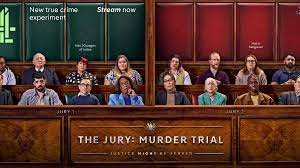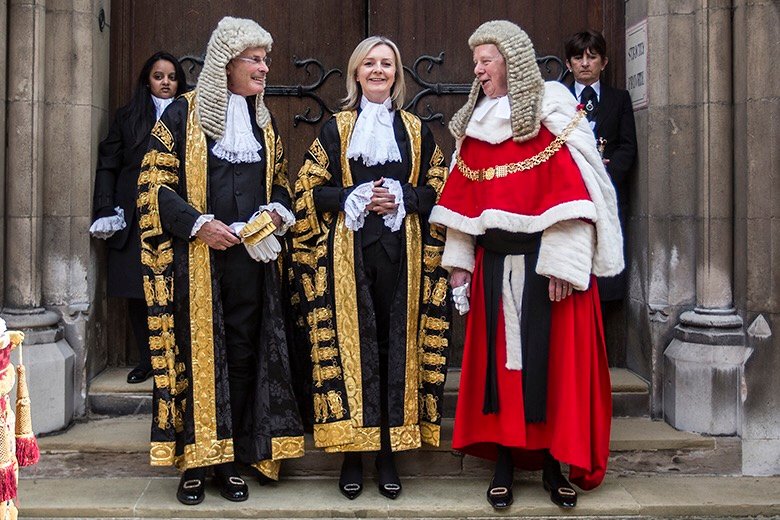The programme “The Jury: Murder Trial” (https://www.screendog.co.uk/retrial) being broadcast on Channel 4 this week should be fascinating viewing. In the words of the programme makers this drama “will examine the jury system for the first time on British television by recreating an entire, real murder trial from the original transcripts in front of two randomly selected juries, neither of whom are aware of the other” Filmed over ten days, in a former courthouse in Essex, the series claims that it will take a forensic look at the inner workings of justice.

I hope the programme makers show enough for us- the TV jury if you like – to glean a glimmer of insight as to how juries deliberate and reach their verdicts. Currently, research into juries or at least how they reach their verdicts remains generally taboo (see eg s8 Contempt of Court Act, whereby it is an offence for a person to ask for or make public any opinions or arguments put forward by a jury member in the course of making a decision)
Channel 4 have tried a similar programme before- in 2007 I was one of the legal advisers (and with a cameo role as the solicitor advising at the police station) to “Consent” (Century Films) which filmed a randomly selected jury deliberating on a rape trial, using real lawyers (although victim and accused were both actors) The Guardian review of the programme concluded “all credit to Channel 4 for airing the issue, which needs a lot more informed public debate, in such a perceptive way”. (https://www.theguardian.com/culture/tvandradioblog/2007/jan/23/didheordidnthe)
Regrettably that was followed soon after by a heavily criticised and lamentable BBC attempt to do the same exercise with a “celebrity jury”. The less said about that, the better.
The new programme by ScreenDog productions to air on Channel 4 promises an improvement on both in two significant ways. Firstly it uses actual transcripts from a real case, and secondly has the idea of filming two juries both watching the same trial, each jury unaware of the presence of the other. We the viewer can watch the two juries deliberate-will they be persuaded by the same points of evidence, and, of course, will they reach the same verdict?
This, if the programme is done sensibly and without sensationalism, should genuinely better inform us as to how juries work, but in all likelihood, the programme maker’s claims are unlikely to stand up to scrutiny.
Potential problems?
Firstly, it seems likely that those on the juries have “applied” to participate, rather than picked by random selection, and in any event the programme makers would be likely to favour “characters” to add some spice to the deliberations.
Furthermore ,the presence of TV cameras means people are more likely to “perform”, or at least be mindful not to display their prejudices which might otherwise come out in the confines of the jury room.
Finally, the juries will be aware that the person in the dock is an actor- and not in real jeopardy of conviction and an actual sentence.
Even allowing for the obvious flaws, and even if they abandon reality for contrived drama (Love Island in a jury room) it my not be wholly without merit.
Every criminal lawyer has wanted to be a fly on a wall in a jury room, and unless called for jury service, this, sadly, is as good as it gets.
So whilst it is unlikely we will gain real insight into the workings of our jury system, if nothing else it should start a debate, and hopefully lead to some proper meticulous research into jury trial, to see whether still fit for purpose or in need of improvement.
Jury Service
Some citizens of course already have the benefit of first hand experience (I have yet to be selected) and although years ago we lost the right to “jury challenge”, there is still an element of self-selection as some will try to get out of their civic duty citing any number of reasons, but principally employment, as satirised in this apocryphal anecdote:
Judge: “Is there any reason you could not serve as a juror in this case?”
Juror: “I don’t want to be away from my job that long.”
Judge: “Can’t they do without you at work?”
Juror: “Yes, but I don’t want them to know it.”
Jury stories
A citizen without experience in the justice system and yet to be called up as a juror may rely on published literature (I strongly recommend “the Juryman’s tale” by magistrate, journalist and former editor of the Sunday Telegraph Trevor Grove), reading occasional commentary pieces. or perhaps by having watched a hazy mix of film dramatisations such as “12 Angry Men”.
Here is Lord Devlin’s famous and often cited robust defence of jury trial:
The first object of any tyrant in Whitehall would be to make parliament utterly subservient to his will; and the next to overthrow or diminish trial by jury, for no tyrant could afford to leave a subject’s freedom in the hands of 12 of his countrymen. So that trial by jury is more than an instrument of justice and more than one wheel of the constitution: it is the lamp that shows that freedom lives …
Of course that is true only if we have confidence that the 12 of of our Countrymen selected are suitably well equipped to make an informed assessment of the evidence and reach the right verdict in accordance with the law. Maybe we should shine a light onto Lord Devlin’s lamp.
Sometimes we are shaken:
In a late 18th-century case in York, about two hours into the trial, Mr Justice Gould suddenly interrupted counsel and declared: “Here are only eleven jurymen in the box. Where is the twelfth?”
“Please you, my lord,” replied one of the eleven, “he has gone away about some business but he has left his verdict with me.”
Sometimes we are stirred:
A man is on trial for murdering his wife, although a body has not been found.
His lawyer says there is not enough evidence. “The ex-wife is not even dead, I am going to prove it to you, she is going to walk through the door in about one minute.”
Almost all eyes are focused on the door. A minute passes. Another minute passes. And another.The prosecution says: “she didn’t walk in.”
Defence say “But the fact that you were all staring at the door expectantly proves that there is reasonable doubt.”The jury deliberates. The defendant is found guilty.
“How can you send a man to prison on such flimsy evidence?” The lawyer asks?
One juror says: “In the three minutes that passed, I looked through the courtroom, and I saw that the defendant was the only person who didn’t look at the door even once.”
There is a treasure trove of great jury stories and anecdotes that supporters (and detractors) of the system can deploy – but sometimes, like the statue of justice, we are blindfolded to it’s faults
Juries are nor perfect
The obvious reality is that the jury system is (as with any system of justice) it is imperfect. If the jury system were perfect, we would not have miscarriages of justice.
Of course many miscarriages are not the fault of the jury- they can arise from perjury, police bias, inadequate disclosure, and many more of the failings in our Justice system (increasingly arising from whole scale underfunding by consecutive governments), but as mark Twain once observed there is “probably no remedy for a jury that lacks common sense”
A good system of Justice is one that recognises juries do not always get it right, and looks how best to correct errors with a robust and fair appeal system, whilst also maintaining confidence by allowing an examination of the issues. Because a jury does not give reasons for their verdicts, it affects the way in which an accused person can appeal against their conviction, typically focussing on the adequacy and fairness of the judge’s directions to the jury if challenged, rather than whether the jury understood or followed them.
Limited Jury Research
In 2010 the Ministry of Justice published a report by Professor Cheryl Thomas of University College, London, after 18 months of research in which more than 1000 jurors in England were interviewed anonymously.
The results of the research were generally positive for the jury system but also confirmed areas where our practice could be improved.
The report also concluded that juries were efficient, but there were three areas in which the report identified scope for improved performance. They were:
(i) making sure that the jury fully understood the judge’s legal directions,
(ii) providing the jury with clear guidance of what to do if a member of the jury appeared to be guilty of misconduct and
(iii) preventing jurors from researching for facts relating to their case on the internet.
While there is always room for improvement, public attitude surveys have shown continuing strong support for the jury system, trust that a jury would come to the right decision, and a belief that a criminal trial by jury is fairer than such a trial by a judge. Whether or not that belief is correct, the jury system involves citizens in the process of criminal justice. The facts of the case are decided upon not by the administration or professional judges but by a group of randomly selected citizens.
I generally share the public’s confidence that juries usually reach the correct decision on the evidence which they have heard in criminal trials.
But I don’t think we should be complacent.
I hope this programme doesn’t prove me wrong.
Verdict?
I look forward to giving my own verdict after the programme has finished- and hearing other views too. Majority support (10/12) following the programme would be great- but if the jurors filmed show bias, ignorance or naivety leaving the viewer with negative views (or even mixed opinions – a “hung jury”) it could be increasingly awkward for defenders of the flame.








